Healthcare providers are held to high standards of professionalism and ethics. Therefore, certain actions or omissions can lead to the suspension of a healthcare provider’s license. Understanding these common causes is crucial for preventing potential issues that could jeopardize your career.
Common Causes of License Suspension:
- Professional Misconduct: Such as falsifying records, violating patient confidentiality, or inappropriate relationships with patients, can lead to suspension.
- Substance Abuse: Healthcare providers who abuse drugs or alcohol, particularly if it impacts their ability to perform their duties, risk license suspension. It is one of the most common causes for license suspension of a healthcare provider.
- Criminal Convictions: Being convicted of certain crimes, particularly those related to fraud, theft, or violence, can result in the suspension of your license. Keeping in mind that it includes improper billing for services.
- Negligence or Incompetence: Repeated mistakes, failure to meet the standard of care, or gross negligence that endangers patient safety can lead to disciplinary action by the hospital and report to the medical board.
- Billing Fraud: Engaging in fraudulent billing practices, such as upcoding, billing for services not rendered, or submitting false claims, can result in license suspension, civil penalties in addition to criminal prosecution.
If you’re facing potential license suspension for any of these reasons, it’s essential to seek legal advice immediately. Contact Zuberi Law Firm at 763-363-6500 or email maz@zuberilawfirm.com to protect your professional license and career.
How Substance Abuse and your Healthcare License Suspension
Substance abuse is a serious issue that can significantly impact a healthcare provider’s ability to perform their duties safely and effectively. Unfortunately, this can also lead to the suspension of a healthcare provider’s license, which can have long-lasting effects on their career.
How Substance Abuse Leads to Suspension:
- Impaired Judgment: Healthcare providers who abuse substances may exhibit impaired judgment, leading to poor decision-making, mistakes, or even harm to patients.
- Violation of Workplace Policies: Many healthcare facilities have strict policies regarding substance use. Violating these policies, especially while on duty, can result in immediate suspension.
- Mandatory Reporting: In many states, healthcare providers are required to report colleagues who are suspected of substance abuse. Failure to report your peers can lead to sanctions against you by the respective professional boards.
- Rehabilitation Requirements: In most cases a healthcare provider is able to get the license back after completing a rehabilitation program, that includes a prolong monitoring period and random drug testing.
If you’re struggling with substance abuse and concerned about your healthcare license, it’s important to take proactive steps. Contact Zuberi Law Firm at 763-363-6500 or email maz@zuberilawfirm.com for confidential legal advice and assistance in protecting your license.
The Impact of Professional Misconduct on Healthcare Licenses
Professional misconduct is a broad category that includes a variety of behaviors that violate the ethical and professional standards expected of healthcare providers. Engaging in such misconduct can lead to serious consequences, including the suspension of your license.
Examples of Professional Misconduct:
- Falsification of Records: Altering or falsifying patient records is a serious offense that can lead to immediate suspension of your privileges at the hospital, report to the licensing board and possible suspension of your license.
- Patient Exploitation: Engaging in relationships with patients that exploit the provider-patient dynamic is unethical and can result in license suspension.
- Breach of Confidentiality: Violating patient confidentiality, whether intentionally or unintentionally, can lead to disciplinary action, including suspension.
- Fraudulent Practices: Engaging in fraudulent practices, such as misrepresenting qualifications or billing for unnecessary procedures, can result in license suspension.
If you’re facing accusations of professional misconduct, it’s crucial to take immediate action to protect your license. Contact Zuberi Law Firm at 763-363-6500 or email maz@zuberilawfirm.com for expert legal representation.
The Risks of Billing Fraud and Healthcare License Suspension
Billing fraud is one of the most common reasons for the suspension of healthcare provider licenses. This type of fraud not only violates legal and ethical standards but also undermines trust in the healthcare system. Understanding what constitutes billing fraud and how to avoid it is crucial for protecting your license. In addition, a provider is may be sanctioned by office of inspector general (OIG), and can be is subject to both civil and criminal prosecution.
Common Forms of Billing Fraud:
- Upcoding: Billing: For a more expensive service than was actually provided is a common form of fraud that can lead to license suspension.
- Phantom Billing: Charging for services or procedures that were never performed is a serious offense that can result in both criminal charges and license suspension.
- Unbundling: Separating services that should be billed together to increase reimbursement is considered fraudulent and can lead to disciplinary action.
- Double Billing: Charging multiple times for the same service or procedure is another form of billing fraud that can jeopardize your license.
If you’re facing allegations of billing fraud, it’s crucial to act quickly to protect your license and career. Contact Zuberi Law Firm at 763-363-6500 or email maz@zuberilawfirm.com for expert legal advice and representation.
